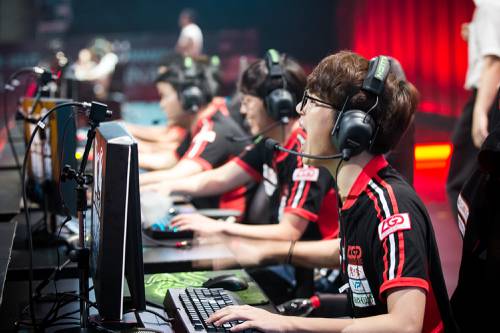
FAQ About The Impact of E-Sports on Global Youth Culture

What is e-sports?
E-sports, short for electronic sports, refers to organized competitive video gaming where teams or individuals compete against each other in popular video games. It has gained significant traction worldwide, with professional players, live-streamed events, and large audiences similar to traditional sports.

How has e-sports influenced global youth culture?
E-sports has had a profound impact on global youth culture by shaping entertainment habits, social interactions, and identity. It provides a new platform for young people to connect with peers worldwide, enhance skills, and establish communities around shared gaming interests.

Why are e-sports popular among young people?
E-sports are popular among young people due to the competitive and engaging nature of games, the opportunity to socialize and form teams, and the appeal of digital media. The prospect of becoming a professional gamer and the availability of online streaming add to its popularity.

What social skills can youth develop through e-sports?
Participation in e-sports can help young people develop various social skills, such as teamwork, communication, strategic thinking, and leadership. Interacting with a diverse global community also fosters cultural understanding and collaboration.

Are there educational benefits associated with e-sports?
Yes, engaging in e-sports can lead to educational benefits, including improved cognitive skills like problem-solving, reaction time, and concentration. Some educational institutions have integrated e-sports programs to promote these skills and offer scholarships to e-sports players.

How do e-sports support youth identity development?
E-sports enable youth to explore individual interests, build self-esteem, and identify with communities that share similar passions. This community involvement and recognition can support personal development and the formation of a strong identity.

What are some popular games in e-sports?
Some popular e-sports games include 'League of Legends', 'Dota 2', 'Counter-Strike: Global Offensive', 'Fortnite', and 'Overwatch'. Each of these games has a competitive scene with organized tournaments and professional players.

How do e-sports competitions work?
E-sports competitions are organized events where players or teams compete in video games for prizes. These events are held both online and in physical venues, featuring brackets or league systems to determine winners, much like traditional sports tournaments.

What role do streaming platforms play in e-sports culture?
Streaming platforms like Twitch and YouTube Gaming play a vital role in e-sports culture by providing a space for audiences to watch live competitions, interact with players, and participate in the gaming community. These platforms help popularize e-sports and connect fans worldwide.

How do e-sports affect traditional sports viewership?
E-sports impacts traditional sports viewership by attracting younger audiences who might prefer gaming over traditional athletic sports. However, some traditional sports franchises have adapted by incorporating e-sports teams into their brand.

What economic impact does e-sports have?
The economic impact of e-sports is significant, with growth seen in revenue from sponsorships, advertisements, merchandising, and media rights. The industry attracts investments from major corporations and contributes to the broader entertainment and technology sectors.

What health concerns are associated with e-sports?
While e-sports promote teamwork and strategic thinking, there can be health concerns such as sedentary lifestyle risks, eye strain, and repetitive strain injuries. It's important for participants to balance gaming with physical activity and maintain good ergonomic practices.

Are there specific career opportunities in e-sports beyond being a player?
Yes, the e-sports industry offers various career opportunities beyond playing professionally, including roles in streaming, coaching, event management, marketing, game development, and commentary. The growth of e-sports has expanded career pathways for young people.

How has e-sports influenced technology development?
E-sports has driven technological advancements in areas such as streaming quality, virtual reality, gaming hardware, and software development. These innovations not only enhance the gaming experience but also influence broader tech trends and consumer expectations.

How do professional e-sports players train?
Professional e-sports players undergo rigorous training routines, including practice matches, strategy sessions, and mental conditioning. They often work with coaches to improve skills and team dynamics, similar to how traditional athletes prepare for competitions.

Can e-sports positively impact mental health?
Participation in e-sports can positively impact mental health by providing a sense of community, achievement, and stress relief. However, moderation is crucial, as excessive gaming can lead to negative effects, highlighting the importance of balance.

What are the major international e-sports events?
Major international e-sports events include The International for 'Dota 2', the League of Legends World Championship, and the Intel Extreme Masters. These events attract global audiences, feature high-stake prizes, and have significant cultural impact.

How do e-sports promote diversity and inclusion?
E-sports promotes diversity and inclusion by providing a platform where anyone, regardless of gender, race, or background, can compete and participate. While challenges remain, there are ongoing efforts to make the field more inclusive and equitable.

What is the future of e-sports in education?
The future of e-sports in education looks promising, with increasing integration into academic curriculums, scholarship opportunities, and development of related career skills. Schools and universities see e-sports as a tool to engage students and prepare them for future tech-savvy roles.

How do e-sports teams generate revenue?
E-sports teams generate revenue through sponsorship deals, merchandise sales, prize winnings, brand partnerships, and content creation. Successful teams leverage their popularity and brand to establish multiple income streams.
